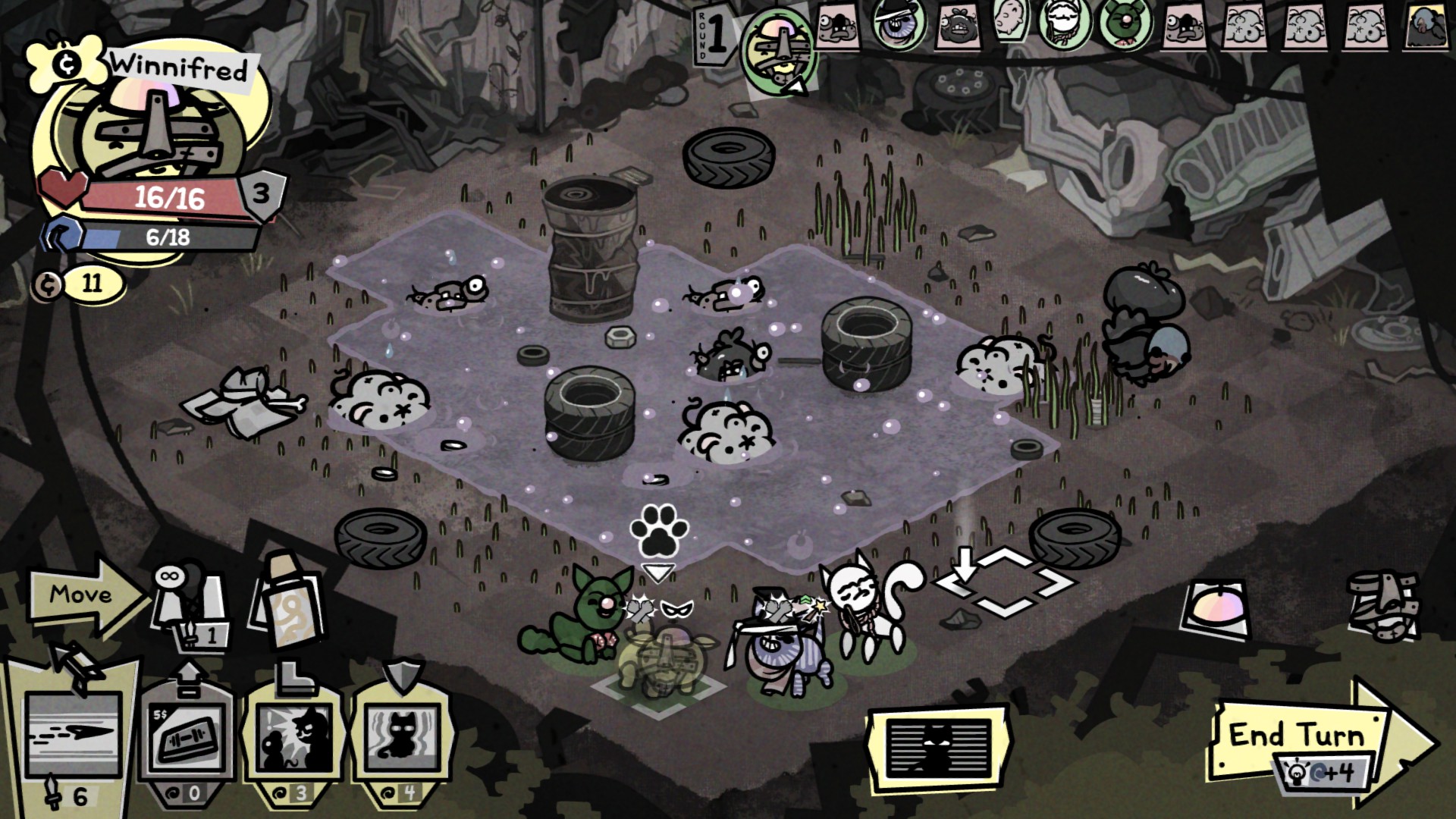Our Verdict
A slick cinematic thriller, but interaction is limited and the story loses focus in the final act.
PC Gamer's got your back
What is it? A first-person game about a pair of FBI agents investigating a disappearance in a small town.
Developer Variable State
Publisher 505 Games
Reviewed on GeForce GTX 970, i5-6600K, 16GB RAM
Multiplayer None
Link Official site
The most striking thing about Virginia is how it uses subtle character animation, artful cinematography, and a stirring orchestral score to tell its story without a single line of dialogue. No one, including protagonist Anne Tarver, utters a single word, yet the characters are deep, interesting, and flawed.
Tarver is an FBI agent investigating the disappearance of a boy in the sleepy, rural town of Kingdom, Virginia. Her partner, Maria Halperin, is leading the case, unaware that Tarver has been assigned to keep an eye on her by the internal affairs department.
Halperin’s office is buried deep in the basement, a great example of how the game wordlessly reveals things about its characters. It’s clear the bureau sees her as a troublemaker and is keeping her out of sight. If that reminds you of a certain ‘spooky’ FBI agent, it’s no accident. Virginia’s tone and aesthetic are heavily inspired by ‘90s TV shows like The X-Files and Twin Peaks.
When Tarver first introduces herself, Halperin is guarded, agitated. Almost as if she knows she’s been sent to spy on her. And it’s remarkable that you can glean this entirely through her body language and the way she looks at you. The faces are boldly stylised, but expressive enough to convey nuanced emotion.

Virginia is a series of short first-person vignettes, using frequent quick cuts to give it a dramatic, TV-like energy. You wake up in your bed, then a second later you’re in a car driving down the freeway, then you're at the door of a house. The editing is fantastic, and no scene ever outstays its welcome, although it can make the experience feel stiflingly linear at times.
Other story-focused games like Firewatch, Gone Home, or Dear Esther, although just as linear themselves, allow you to explore and absorb their worlds at your own pace. But in Virginia you’re breathlessly pushed from one moment to the next, and there’s rarely anything to interact with other than the prescribed thing that’ll trigger the next scene.
Early on I tried to break away from the critical path whenever I could to poke around the environments, wondering if I’d find any additional story details or clues. The detailed world-building seemed like it was encouraging me to do so. But, with a few exceptions, there was never anything to find, so I eventually stopped exploring altogether.
This lean, guided structure gives the game a lively pace, but it also diminishes your role as the player. I never really got the sense that I was inhabiting the role of Tarver. It was more like I was passively observing, rather than taking part, in her life. Virginia tells a story filled with drama, emotion, and revelation, but I never felt like I was experiencing any of it first-hand.
However, despite this lack of agency, the game’s exquisite sense of style kept me interested. The dream sequences are a particular highlight, using bizarre imagery and disorientating editing to expose and explore Tarver’s psyche. They occasionally feel a little weird for weird’s sake, but I always found myself looking forward to the next surreal journey through her subconscious.
And the music is incredible. Performed by the Prague Philharmonic Orchestra, composer Lyndon Holland’s score is lavish, stirring, and cinematic, with moody, brooding synth pads reinforcing the ‘90s TV aesthetic. It’s also a valuable storytelling tool, filling in the blanks left by the absence of dialogue and establishing the game’s emotional and thematic landscape.

The disappearance of the boy is ultimately unimportant. Virginia is really a story about Tarver and Halperin, and the case a means of bringing them together. The opening scenes lead you to believe you’ll be finding clues and solving a mystery, but that’s somewhat misleading, even though there are elements of both. Really, it’s a character study disguised as police procedural.
And as the case slowly fades into the background, the game steadily begins to lose focus. It becomes more fractured and abstract, littered with symbolism and drifting in and out of reality. And although interesting artistically, the final act left me yearning for a more satisfying, or at least more coherent, denouement.
I don’t mind a story being left open to interpretation—in fact, when it’s done well, I always prefer it to a clear-cut ending—but I couldn’t help but feel that Virginia’s closing moments were self-consciously, knowingly abstruse. Like the writers were actively trying to confuse you.
But there’s nothing else quite like Virginia on PC. It’s beautifully presented, incredibly atmospheric, and features one of the best videogame scores in recent years. But perhaps its greatest accomplishment is how, with a completely silent narrative, its cast is somehow more interesting than characters from other games who have thousands of lines of dialogue.
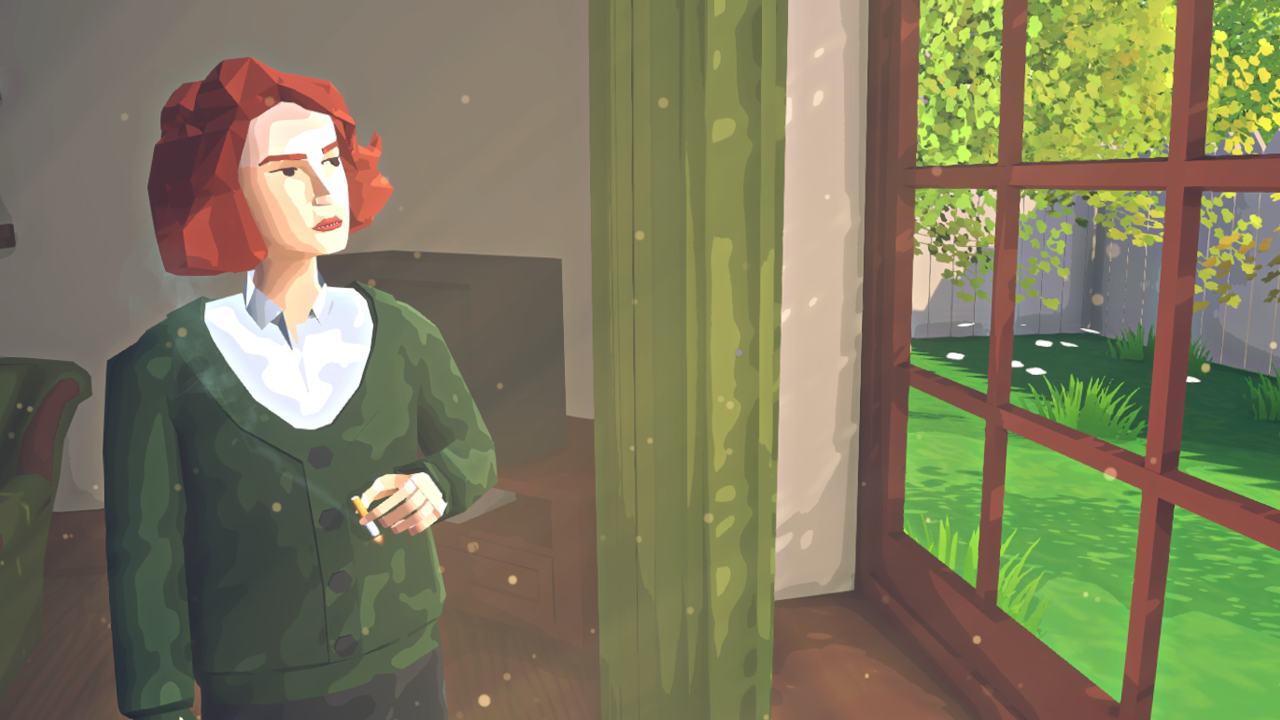

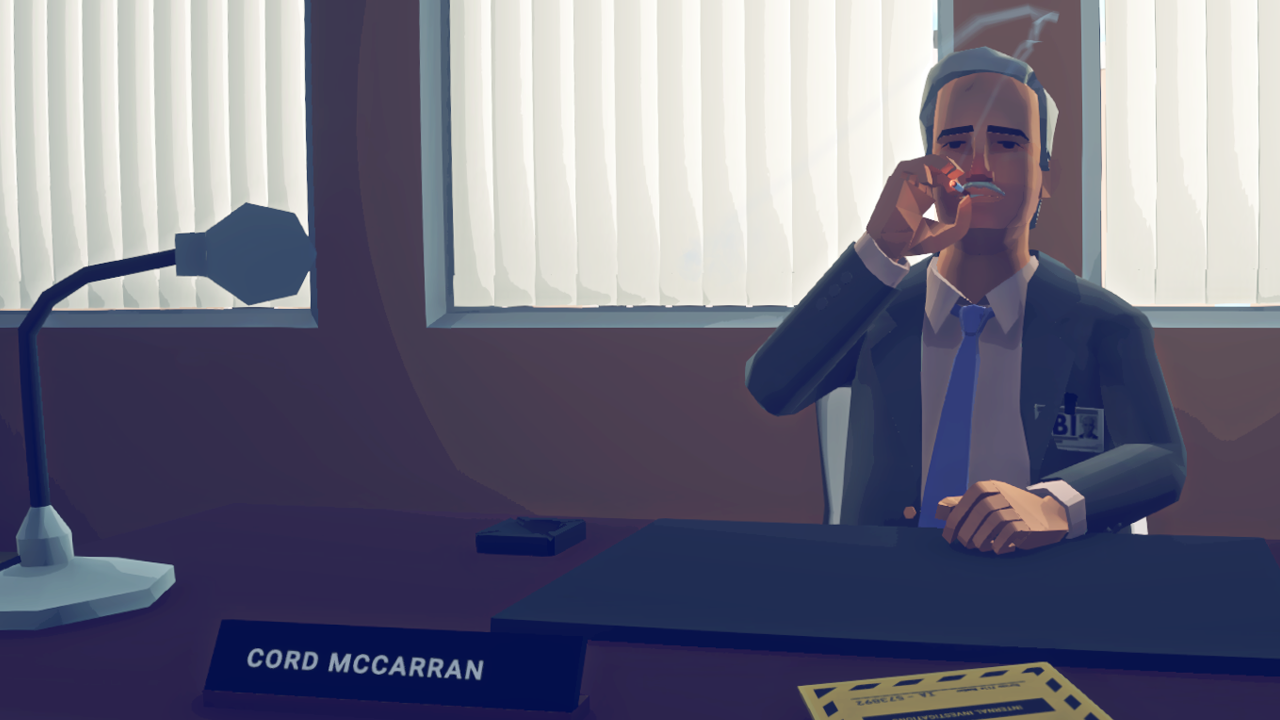
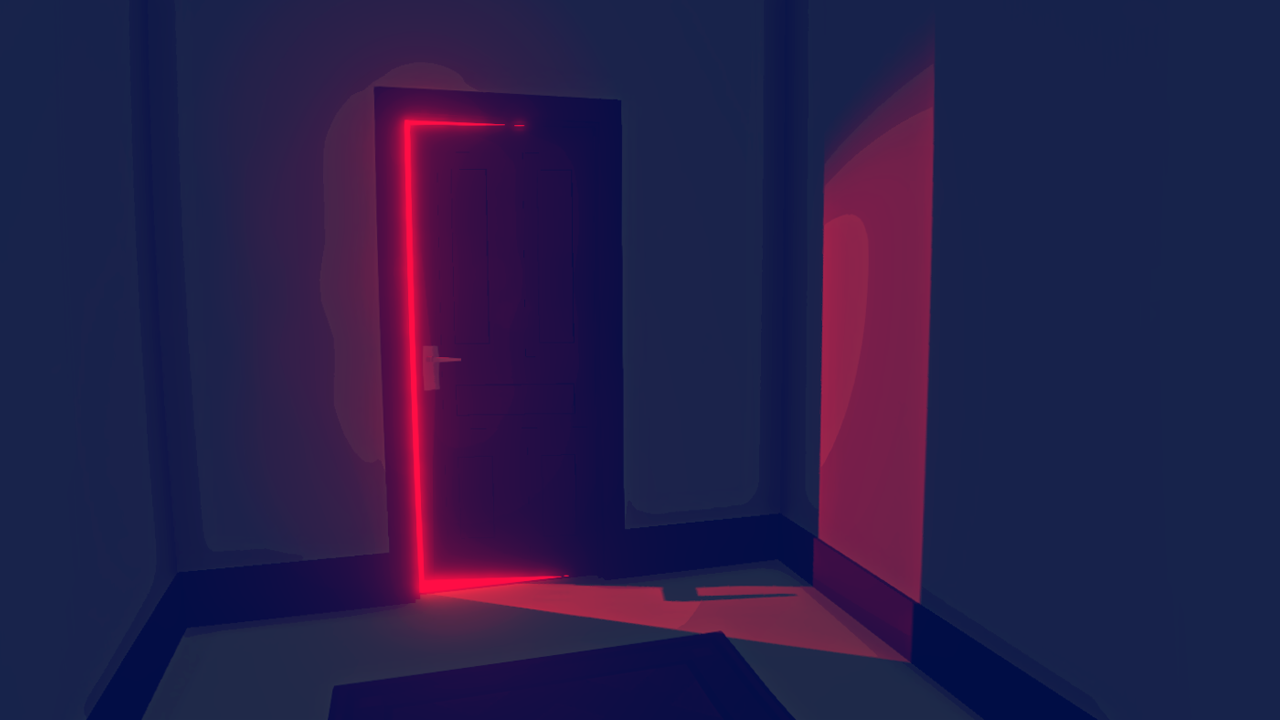
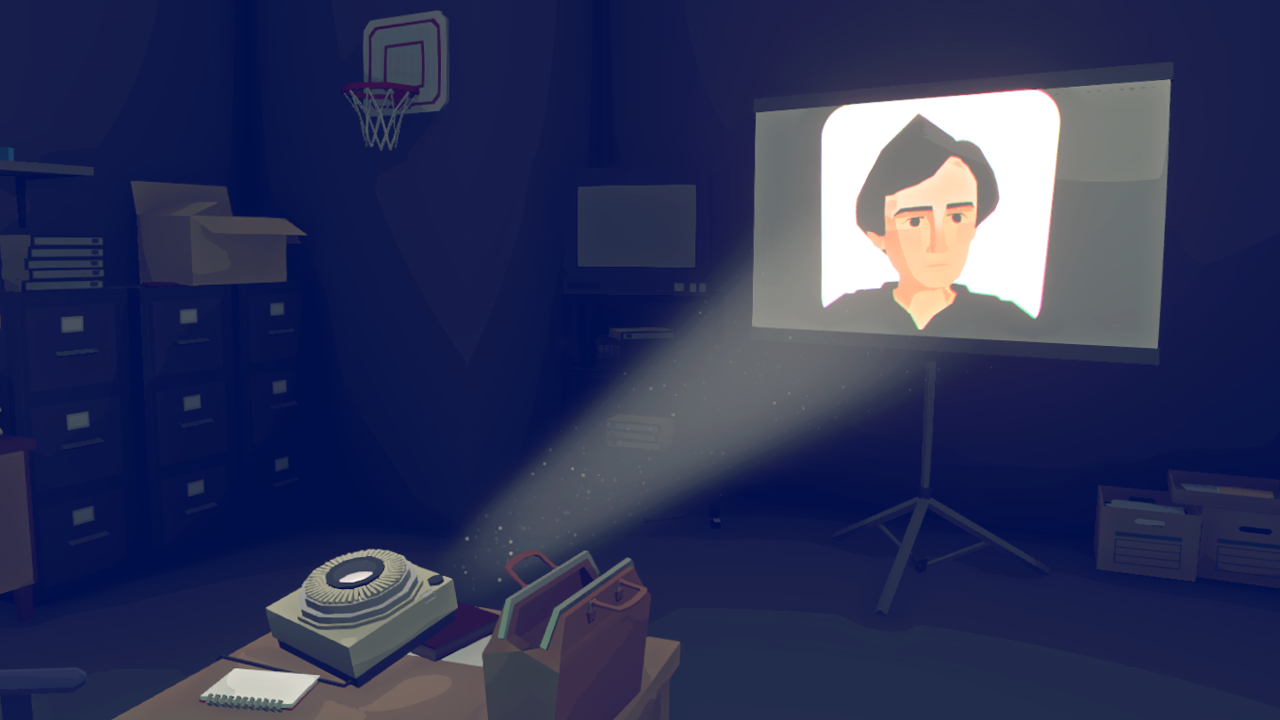
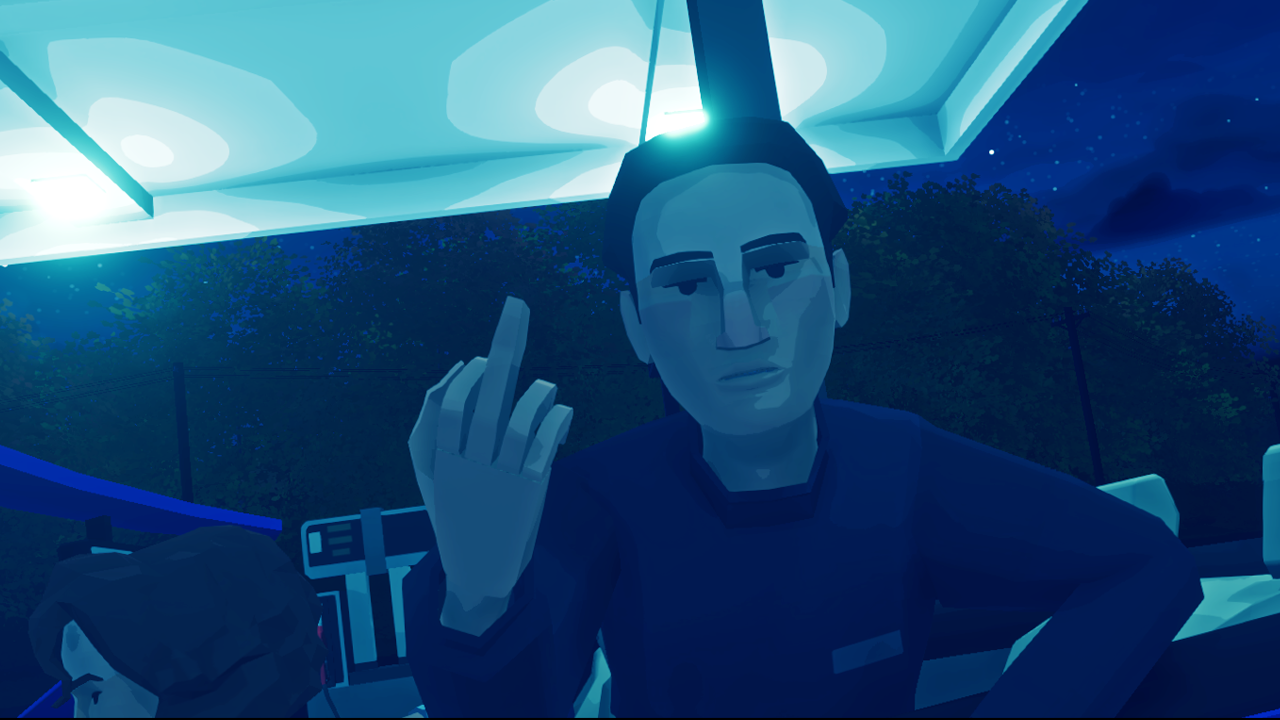
Keep up to date with the most important stories and the best deals, as picked by the PC Gamer team.
A slick cinematic thriller, but interaction is limited and the story loses focus in the final act.
If it’s set in space, Andy will probably write about it. He loves sci-fi, adventure games, taking screenshots, Twin Peaks, weird sims, Alien: Isolation, and anything with a good story.



